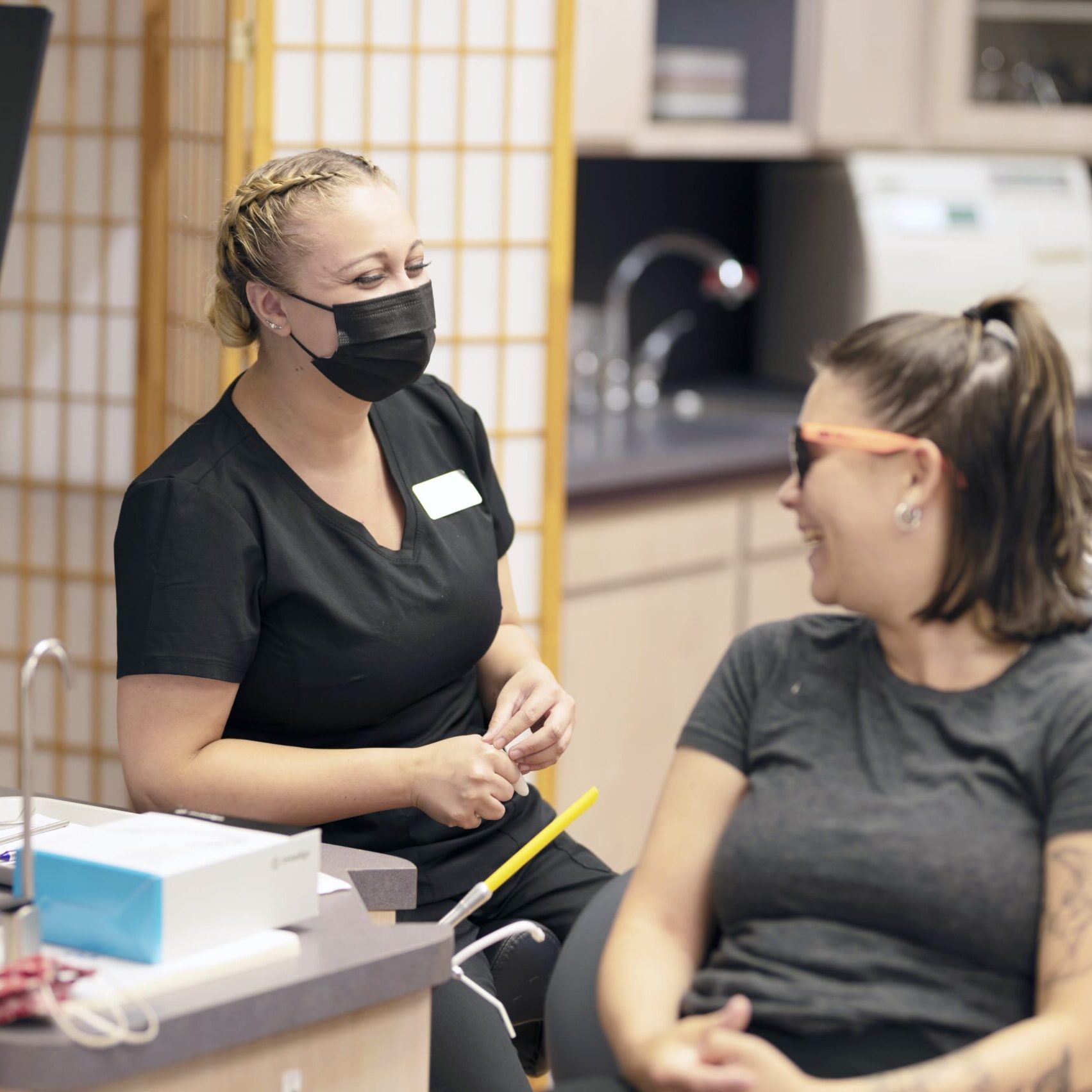What’s the Difference?
If you’ve been looking into getting braces or Invisalign in Watertown or Woodbury, there’s a good chance that you’ve seen various types of services offered in both specialty (orthodontic) and general (family) dentist offices.

An Orthodontist Is a Dentist, but a Dentist Isn’t an Orthodontist
All orthodontists – Dr. Clauss included – are dentists first. But not all dentists are orthodontists. In fact, Dr. Clauss practiced general dentistry for about five years before becoming an orthodontist.
Once a dentist decides to progress his or her training to become a specialist such as an orthodontist, he or she continues their formal education for another two to three years of didactic and clinical work before additional testing and licensure.
As an orthodontist, Dr. Clauss has spent years studying nothing but how and why to move teeth, including what to do, how to plan it, and executing the appropriate treatment plan.
Does it Matter Which One You Go To?
All dentists receive basic orthodontic training in dental school. As they do training on procedures like root canals, wisdom tooth extractions, and treating children. Yet, specialists have additional training to hone their skill set on a particular field of dentistry.
Why would this matter? Seeing a specialist like an orthodontist may change your experience in braces by:
- Providing more treatment options, with a variety of braces or therapies to choose from (instead of just one or two)
- Having personal experience treating multiple cases that share your unique concern and anatomical characteristics
- More efficient treatment and visits, because it is the office’s focused area of care
- Knowing that you’ll receive the best possible outcome on your treatment plan, especially if you have severe bite discrepancies that need to be addressed
- Being seen more quickly, as a family dentist will be focused on longer patient cases or emergencies throughout the day (making it harder to step away for a few minutes)
While some individuals may think that it’s easier to have their orthodontic work completed with their family dentist, you’ll only be stopping by the orthodontist’s office every six to eight weeks –it’s not as often as you think.
If convenience is a concern, it’s worthwhile to at least schedule a free consultation with Dr. Clauss to find out how we can help you.
Will One Cost More Than The Other?
Most people assume that seeing an orthodontist for their braces will cost much more than going to a general dentist for the same service. After all, an orthodontist is a specialist in the field.
Fortunately, there isn’t a huge price point difference between seeing a dentist vs. an orthodontist.
In fact, treatments might be cheaper at the orthodontic office, because they’re able to work more efficiently and have the equipment or materials on hand at all times.


Are the End Results the Same?
In some cases, a treatment plan may not go as it should. Either your teeth don’t respond as expected, growth modification techniques aren’t effective, or something just goes wrong.
An orthodontist has extra training and experience to handle such complex and unique situations.
If a general dentist didn’t have experience with a similar case, they may just have to try to fix the issue through trial-and-error, leave it as it is, or refer their patient to a board-eligible orthodontist for the duration of the therapy.